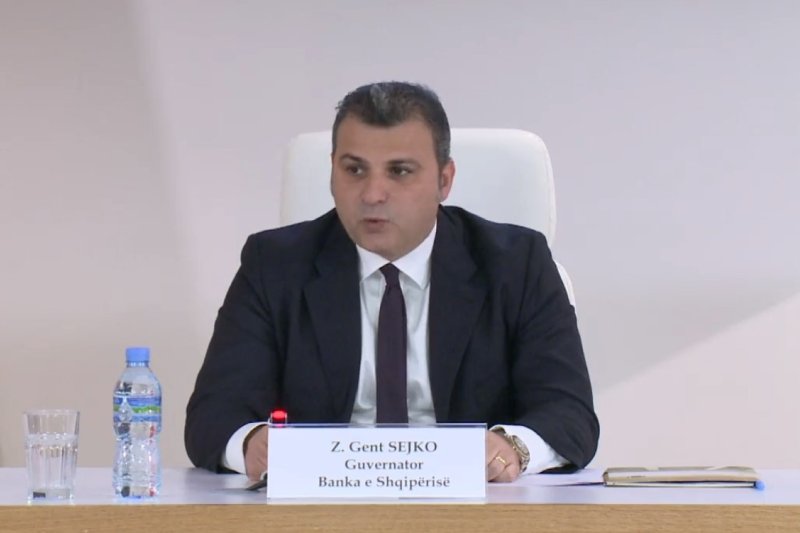Bank of Albania Cuts Policy Rate to 3%
The Bank of Albania said on Wednesday it decided to decrease its monetary policy rate to 3% from 3.25%, as inflation decelerated beyond its expectations in the second quarter.
Non-harmonized inflation eased to 2.1% on average in April and May as a rise in food prices was notably reduced, mainly due to a slowdown of inflation in imported foods, central bank governor Gent Sejko said in a statement.
The rise in the prices of other items in the consumer basket was steady in the second quarter as internal inflationary pressures remained stable due to increasing demand supported by wage hikes. In the first quarter, non-harmonized inflation averaged 2.7%.
Preliminary data indicates sustained economic growth during the second quarter, supported by increased consumption, private investments, service exports, and a continued growth of the tourism sector, the Bank of Albania said. On the downside, exports of goods declined.
New information suggests that the Albanian economy has continued to grow in the first half of 2024, with rates close to those of the previous year. The indicators available from the real and financial sectors suggest that economic growth has continued to be led by the expansion of consumption and private investments, as well as the expansion of the tourism sector. On the other hand, the export of goods has decreased, while the public sector continues to follow a fiscal consolidation policy, which materialized in relatively high levels of the budget surplus.
Overall, the sources of growth appear healthy, providing guarantees for the sustainability of economic growth in the future. Thus, the improvement of the financial condition of the private sector, the stable and accommodating financial environment, the progressive growth of credit, as well as positive expectations for the future are fueling the growth of domestic demand. In parallel with them, the interest to visit and invest in Albania - as read by the high number of visitors and the increase in foreign direct investments during the first months of the year - is fueling the growth of exports of services and related sectors, said Sejko.
In our assessment, the Albanian economy is still in a positive phase of the business cycle. This assessment is supported, among other things, by the reports of businesses on the increase in the utilization of their productive capacities and by the positive developments in the labor market. New data from this market prove the acceleration of private sector wage growth – to 12.7% in the first quarter – and their continued growth in the public sector. The increase in wages and the progressive decrease in inflation have supported the disposable income of families and increased their purchasing power. On the other hand, the up-to-date increase in wages and production costs has only been partially passed on to consumer prices, reflecting their absorption in part by productivity growth and in part by the reduction of business profit margins.
The monetary policy followed by the Bank of Albania has had a positive impact on maintaining the country's monetary and financial balance. The gradual and careful normalization of the stance of monetary policy during the period 2022-2023 made it possible to reduce inflationary pressures, without harming the medium-term prospects of economic growth.
The central bank also cut the interest rate on the overnight lending facility to 4% from 4.25% and the rate on the overnight deposit facility to 2% from 2.25%.
Albania's EU-harmonised index of consumer prices (HICP) rose 2.5% year-on-year in May, slightly accelerating from a 2.3% annual increase in April, the statistical office, INSTAT, said earlier this month.
Bank of Albania increased its key rate six times in 2023 - in March, July, August, October, and November, and has held it at 3.25% until Wednesday.













